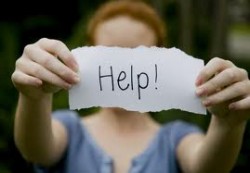10 Symptoms of Adolescent Depression Parents Should Recognize
Considering the raging hormones and developing self-identities that characterize the teenage years, a certain degree of moodiness is to be expected in a teenager, especially in today’s fast-paced world. This stage of development in particular can make it difficult for parents to recognize symptoms of adolescent depression.
While it’s important to keep the lines of communication open with a teen, many young people may not have the communication skills needed to let parents know how they feel. Some teens may also feel embarrassed, viewing symptoms arising from adolescent depression as signs of weakness. Keeping an eye out for specific changes in a teen’s emotional or behavior displays can help uncover possible signs of adolescent depression.
Adolescent Depression

It can be hard for anyone, especially young people, to see that they need help. Know the signs to best help your child!
Depression in any form is more than a mindset or behavioral pattern; it’s a serious medical condition. According to the Mayo Clinic, adolescent depression affects how a teenager feels, thinks and behaves. These changes interfere with a teen’s ability to carry out daily activities and obligations and can also affect his or her physical health. The only real difference between adolescent depression and the adult version has to do with how symptoms play out in a person’s daily life.
Teenagers contend with ongoing peer pressure and academic challenges as hormonal changes wreak havoc on their emotions. Good days and bad days (or hours) are to be expected. When the bad times start to outnumber the good on an ongoing basis, adolescent depression may be the cause. While it is possible to spot specific symptoms in your teen, the final diagnosis should be made by a doctor or mental health professional.
10 Symptoms of Adolescent Depression
Whether adult or teenager, depression has a way of seeping out into a person’s everyday life. These ten symptoms of adolescent depression should be fairly easy to recognize if your teen is struggling in this area.
- Loss of interest in activities once enjoyed
- Appetite changes causing significant changes in weight
- Fatigue, problems sleeping
- Withdrawing from friends and family, isolating
- Poor academic performance
- Frequent headaches and/or stomach aches
- Pervasive feelings of sadness and/or irritability
- Behavior problems at school
- Self-criticism
- Risk-taking behaviors – heavy drinking, drug use, sexual promiscuity
With normal teenagers, any one of the above symptoms can come and go on a random basis. Symptoms that last two weeks or longer may warrant cause for concern.
Other Indicators
As depression stems from biological and psychological causes, risk factors involving adolescent depression can likewise be biological and/or psychological in origin. Depression disorders tend to run in families for both genetic and environmental reasons. Teenagers from families with a history of depression or psychological disorders in general may be more susceptible to developing depression symptoms.
Teenagers diagnosed with other psychological conditions, such as attention-deficit disorder and hyperactivity disorder may also become more vulnerable to adolescent depression symptoms. In cases where teenagers have experienced traumas, such as the death of a loved one, divorce or physical/sexual abuse, the seeds of adolescent depression may already be part of their psychological make-up.





